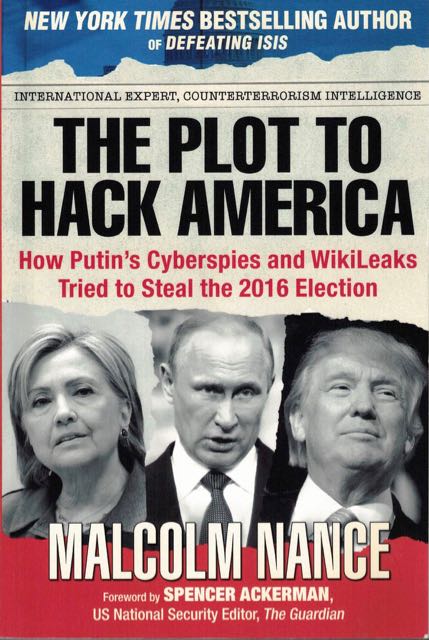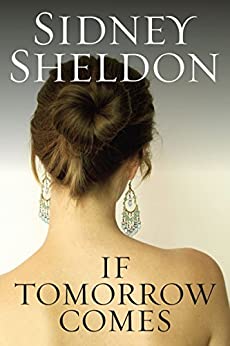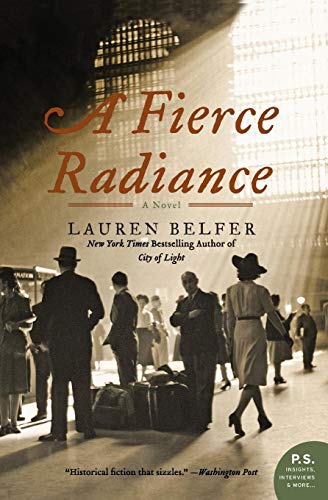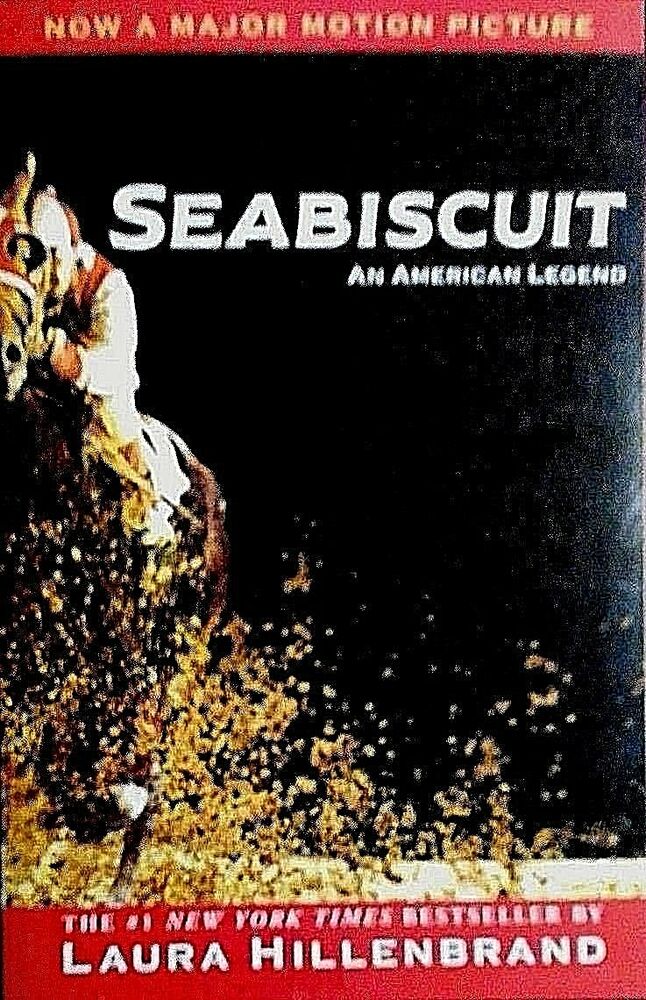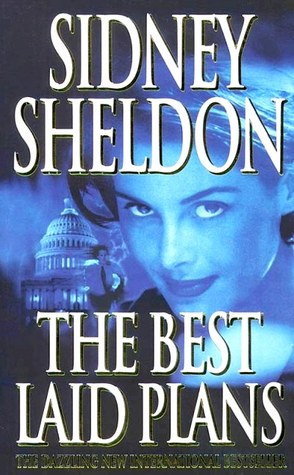You know that when Bill Bryson, the author of such non travel books as At Home and The Mother Tongue gets his teeth into a subject, he makes a thorough job of researching it. This book is very similar.

His introduction itself holds your interest. With the example of Scandinavian children singing ‘Jack and Jill’ without even understanding the words to a ‘missing’ ditty showing up in one isolated nurse’s lullabies to the homeowner’s children, he raises expectations of a good time, and delivers!
This book is about everything American – American practices, inventions and everything purely American. But a large part of it is about how the English language morphed in America and Bill Bryson is in his elements in this book. In my review, mainly because of my primary interests, I will be focusing more on the language aspects. For a lot more of the fascinating facts – about advertising, movie history and sports to give just a few examples – you are better off reading the book. I do touch upon these in this review but not in probably as much detail as you may desire.
He talks about Mayflower and the several errors in popular conception of the voyage. The people were Separatists, not Puritans. The name Pilgrim was not applied until almost a century later. They did not land at Plymouth Rock and perhaps did not even glimpse it. And so on. Fascinating.
Read about the facts that European settles in the eighteenth century were not the first visitors and not even the first Europeans in the New World; read about the colossal arrogance and incompetence of Columbus, who won eternal fame for his voyage to America and who was dragged back in chains to Spain shortly thereafter…
Amerigo Vespucci is a Florentine who moved to Venice to run a ship supply business. He was a nobody and even the voyages he made to the New World were as a passenger and a lowly officer. However, a PR campaign claimed that he was the captain of those voyages and also ‘he was the one who discovered New World’. He ended up being commemorated with his name attached to two continents today due to the error! (And successful lobbying on a false cause.)
There is an exhaustive and interesting discussion of the roots of the American language – It is a mixture of the old English that the early settlers carried with them, their own compound words, and made up words by stacking two unrelated words together (eg sidewalk) and words borrowed from Native Americans with whom they had contact. Bill starts with the ferment the language was undergoing already in England. For instance, he talks of the pronunciation of words like maketh, which initially was spelled the same way but pronounced ‘makes’ before making the lexical translation as well. The habit of making plurals by adding ‘n’ like shoon for shoes disappeared (though it still survives in a few words like oxen and brethren). The pronunciation of words ending in ‘-ed’ changed. (From ‘change ed’ to ‘changed’ for instance, though the old pronunciation is preserved in a few like blessed and beloved). ‘J’ was newly invented – Chaucer used to spell joy as ioye. Also the word Goodbye was used first by the pilgrims, starting with Godbwye, short for ‘God be with ye’.
England had a passion for turning some nouns into verbs then, which did not (initially) make it to America. (Examples are gossip, fuel, inch, hurt)
Some English words that later perished in Britain were preserved in America. Fall for autumn, bug for any insect, junk for rubbish, rooster for a male fowl. They misnamed species which survives. The American rabbit is really a hare; robin is actually a thrush.
Examples of mashed words to create new include eggplant, glowworm, rattlesnake, rubberneck, tightwad, bullfrog, cookbook, frostbite. Avenue in England meant a line of trees but any broad road in America so the British name for Avenue Street sounds like a redundant usage to American ears.
Moose, raccoon, caribou and opossum were all borrowed from Native American terms. Raccoon was initially raugroughcum, then rahaugcum and then rarowcun, then rowcoon and then the current form. The Algonquin senganku became skunk. Wuchak became ‘woodchuck’. (Bill reminds us that ‘despite the tongue twister, no woodchuck has ever chucked wood’!) Algonquin naiek gave the word ‘neck’ in the meaning of ‘in this neck of the woods’.
Algonquin word for a tribal leader was ‘Cowcatvwassoughes’. Knowing it is hell for western tongues to pronounce, let alone spell, it was immediately modified to ‘coucorouse’ and later morphed into the current word caucus. Pakan in Algonquin was for any hard shelled nut, but the borrowed term pecan became the name for a specific nut.
Newfoundland, on its part contributed the word penguin to the English language. Some Spanish sailors mutinied and branched out on their own. They were called buccaneers because they sustained themselves after fleeing their Spanish masters by smoking the flesh of wild hogs on a wooden frame called boucan until they captured a ship and make it their own.
Interestingly, in olden times ye was used to address a single person and you for more than one. This useful device fell out of favour but is still respected in the fact that we say ‘you are’ for addressing a single person and not ‘you is’ as you would expect.
Tobacco, imported from the New World (though Arabs and Spaniards knew about it earlier) was a rage in England with various powers ascribed to it : aphrodisiac, healing of all kinds of humors etc and was all the rage there.
Meanwhile the War of Jenkin’s Ear between Spain and England (Don’t ask why it was called that!) gave rise to the name Grog for a drink, which was rum diluted with water. It was named after commander of England’s feet Edward Vernon, whose nickname, for unknown reasons was Old Grog. If you drank too much of it, of course you became groggy.
Bill Bryson’s description of the events during 1776 and how it was distorted to preserve the myth of American Independence are wildly amusing. Since these are asides and not directly relevant to the linguistic topic of this book, I will not give examples but it is definitely worth reading, when you take up the book to read.
We learn that Benjamin Franklin, in addition to being a very important person in the Constitutional panel was also a very successful businessman (and therefore wealthy) and was a scientist (or ‘natural philosopher’ as it was called then), writer who columned many essays, and was an inveterate womanizer. The language of the time could also be irreverent as doctors were nicknamed ‘pisspot’, a nonconformist was called ‘Shit sack’ and a blind person was (cruelly?) called ‘groper’. A footman who followed behind was a ‘fartcatcher’.
The fact that Franklin’s reputation was mud in his own lifetime and he was considered a ‘doddering old fool’ until many years after his death come as a surprise to a modern reader. (It did to me.)
John Madison had a towering intellect but was physically unimpressive. He was short ‘with a height of half a bar of soap’ in the disparaging words of one contemporary and had a squeaky voice and had, on top of that, a shy disposition.
Bill Bryson always finds fascinating bylanes (or rabbit holes) to wander down, because they are so fascinating, before returning and moving in the direction he set off initially. This is what makes his books so fascinating.
Even here there is a linguistic connection: the English used in the document itself. For instance, nowhere in the Constitution does the word ‘nation’ appear. This was to ensure that the fractious and defiantly independent states did not construe this as a power grab by the central authority. Instead the word ‘federal’ is used, derived from Latin fides or ‘faith’ implying a trustful relationship.
Many of the prohibitions in the Constitution were not guaranteeing freedom per se, but ensuring that the Federal authority did not usurp the power of the States on some topics!
Columbus was resurrected as a hero. Initially he was forgotten because he was Spanish but when USA gained its independence, the new country’s leaders were looking for names not connected to British and Columbus was named for several things – the capital of Ohio, the Columbia university, and a new state claimed as Columbia (which later became multiple states including Washington, Idaho and Oregan). But North of the border the name still lives on – as British Columbia. Washington Irving wrote a highly inaccurate book on Columbus that started the mania and later he glossed over all the flaws and wrote a highly hagiographic account of the Life of George Washington. Mythmaking was at its highest.
Mason Locke Weems wrote the story of the now famous ‘Washington and The Cherry Tree about a young boy Washington, which was fully made up. Washington in real life was moody, remote and vain. He detested being touched by strangers and had the embarrassing proclivity to cry loudly in public. Far from the myth of heroism in French and Indian War, he helped provoke it He massacred ten French soldiers in an irrational and unnecessary attack, and when they, enraged, declared war on the British, he was routed and wrote an apology for ‘assassination’ of the Frenchmen which enraged his compatriots! (None of this is to deny his other great qualities like his dogged perseverance in fighting for independence against impossible odds, his absolute incorruptibility and his absolute honesty, but to talk about whitewashed books published after independence, glossing over these completely).
The American national anthem has the words ‘Bombs bursting in the air’. Why in the air? It was devilishly difficult to cut the fuse at the right length so that the bombs will go off on impact and hence many ‘burst in the air’. The anthem itself was based on bombing during the War of 1812.
Until much later, the government of USA did not print any paper money (greenbacks that are so coveted today). Instead banks issued paper money (and the government only made coins). Each bank issued a different ‘currency’ and some of them were sought after. The $10 bill issued by The Citizens Bank of New Orleans. It had the word ‘Dix’ for ten on it and so came to be called Dixie, the appellation later applying to almost the whole of Southern US.
The Spanish word pieza – meaning ‘piece’ – morphed into peso, the small coins used. Barter system prevailed and the goods used in barter were called ‘truck’ from Old French troquer, meaning to peddle or trade. The vehicle ‘truck’ that we are familiar with now came from Latin trochus, meaning ‘wheel’.
Dime is the same corrupt origin as dixie, from ‘dixieme’ and denotes, unsurprisingly, ten cents. Cent itself comes from ‘centum’ or hundred but is still bizarre because initially there were two hundred cents to a dollar! The use of the term ‘buck’ for money originated with the dollar, and referred to ‘buckskin’ a very early form of commodity in bartering.
It is interesting to note that the term ‘stiff upper lip’ as today applied to the British, is actually of American origin!
Penitentiary in American became shortened to ‘pen’ (as in ‘He was in the pen’), fanatic was shortened to ‘fan’. The noun form of dump and beat are from Americans.
Another American invention was the word tycoon applied to successful business leaders, which was borrowed from Japanese ‘taikun’ or military commander.
Equally astonishing is the life of Goodyear, who invented the vulcanization process. He found the process of making rubber durable purely by accident, patented it but the idea was stolen by countless others and he died with huge debts – even during his life he lived in penury due to his obsession with rubber that did not make money and his family could not even afford a coffin when his two year old child died. The Goodyear company was started by someone else (who admired him enough to name the company after him) and he made no money from that either!
Similar calamity befell the inventors of sewing machine, vacuum cleaner and a host of other inventions. Makes for interesting, if pathetic, reading. For example, the inventor of telegraph technology was Joseph Henry, who did not profit from the invention or even patent it. Who did? Samuel Finley Breece Morse – yes, of the Morse code fame. He was a strange fellow who was virulently Anti Catholic, but believed that slavery was not only good but was divinely ordained. After giving up his professorship and struggling in penury for five years he succeeded in being one of the two recipients of $300,000 grant from the Congress. Who was the other one? A person working on mesmerism! (Yes, true story according to Bill.) He went to Henry for advice but refused later even to acknowledge his contribution, let alone share the spoils. He also stole the photograph art from Daguerre (of the daguerreotype fame) and a powerful magnet invented by Breguet for personal gain, to augment his already considerable fortune.
Alexander Graham Bell, was a Scotsman (probably living in the Dominion of Canada as the Canadian story would have it) when he invented the telephone and became a US citizen six years later. He was interested in long distance sound since both his wife and mother were deaf!
Edison, the consummate inventor took credit for other people’s inventions, stole ideas and effectively undermined rivals. He also tried to discredit competitors (as spreading false rumours about dangers of Alternating Current (as opposed to the Direct Current where he had spent most of his efforts) and resorted to bribery to get the laws passed to his favour. Bill Bryson says, tongue in cheek that ‘Edison’s character was not altogether unflawed’. Indeed!
He lists some American towns unfortunately named : Toad Suck is a town in Arkansas, Idiotville is in Oregan, and Boring is in Maryland, In addition, several place names were morphed from the earlier Dutch names as the Dutch left their territory to the British settlers. Almost everyone knows (don’t they?) that New Amsterdam was named New York (in honour of the Duke of York, not the place in England). Others are more obscure. Haarlem, for instance, lost a vowel; Vussingen became Flushing (in NY). Breukelyn became Brooklyn. Deutel Bogt became Turtle Bay; Amorties Neus, hilariously, became Anthony’s Nose.
When Thomas Jefferson bought, for about 3 cents an acre, an enormous land from French which would become all or most of 11 states! (It was known as Louisiana purchase though the states it formed included Arkansas, Kansas, Montana and many others apart from Louisiana. He sent as his surveyor Meriwether Lewis, who chose as his friend William Clark as the co leader. (Yes, the well known Lewis and Clark!) They were gone two and a half years (with a party of forty eight (and a dog) and traveled some eight thousand miles of the then uncharted territory.
Lewis was made governor of Louisiana but his bouts of insanity made him commit suicide at the tender age of thirty four. Clark was the governor of Missouri and served well.
It is the California Gold Rush that gave new terms to the language, among them pay dirt, strike it rich and pan out. And the word Gringo comes from Spain, not Mexico, and it’s a corruption of the word Greigo (or ‘Greek’) in the sense of ‘It is all Greek to me’ used today.
And alligator came from Spanish ‘el ligarto’ which meant ‘the lizard’!
The Dutch also bequeathed several words ot the American English language. Among them coleslaw, boss, bedpan, poppycock (from pappekak or ‘soft dung’) and also nitwit (from Dutch ‘Ik niet weet’ meaning ‘I Don’t Know’). One of the better known Dutch gift is Santa Claus. The Irish gave, among many others, hooligan (from Gaelic uallachan meaning ‘a braggart) The word Yiddish itself came from middle German ‘judisch diutsch’ or ‘Jewish German’) Yiddish is modified German but written with Hebrew characters, right to left like Arabic. Germans gave us sauerkraut and geshundeit (which means ‘health!’ as a greeting after someone sneezing). Sephardic Jews came from Spain and Portugal. In fact Sephardic means ‘Spanish’ in Hebrew. Yiddish gave the words bagel and pastrami to American English, not to mention chutzpah and glitch (from a word meaning ‘to slip’).
Boondocks comes from the Tagalog language of Philippines, and means ‘a hill’. Turnpike, that common Americanism, was of British origin. It was called thus because the way was blocked by a studded pole (or ‘pike’) which was turned to allow passage once the toll was paid. The word coach comes from Kocs, a Hungarian town where it was first built. The word Bum, as in ‘a tramp’ came from Bumler, a German word for loafer.
As you can tell, if you are interested in Etymology or simply into languages, there is a treasure trove of information in this book. He talks about auto parts. Since French (yes, French, not Germans yet) were big on cars, many of those terms were borrowed from French. Chassis and garage are from French. The word automobile in itself was from French – weirdly, it mashed a Latin root word and a Greek root word to produce this common word. Limousine was from the name of a shepherd’s cloak in Limousin region of France. Early drivers, waiting in the cold, used to wear a similar cloak! Hence the name to the car itself!
Till they came to America, the pioneers had never seen or heard of tomatoes and potatoes. (Really? Then the Irish Potato famine must have happened much later, I muse). The white potato reached England but the queen’s cook thought the leaves were the ‘vegetable’ part and so cooked them and threw away the tubers! Naturally it did not become popular in England. Thereafter, having ‘learnt’ that it was not tasty, it was grown for many years as a purely ornamental plant. As I mused, it then spread to Ireland who took to it well because ‘it was one of the few plants which could grow in Irish soil’ according to Bryson.
Have you wondered how the bird Turkey got the name from a country far away? Here is your answer. When turkeys first appeared in England (eighty years before the settlers left for the New World on Mayflower) they were mistakenly supposed to have been sent from Turkey, when in reality, they came from Spain. The name stuck. The French, incidentally, thought they came from India and called them chickens d’Indie which morphed into dindon, the modern French word for Turkey. Germans Dutch and Swedes thought it came from Calicut in India and named it based on it. (For instance Germans called it Kalekuttisch Hun). The Jerusalem artichoke is not an artichoke and did not come from Jerusalem in the Middle East! The artichoke part was a misunderstanding (even though it looks nothing like an artichoke). It is the root of the Sunflower. The ‘Jerusalem’ is a corruption of the word Sunflower in Italian, girasole.
The colonists had dinner at noon and in the evening just had soup, whence came the word supper.
Doughnuts came from the Dutch but initially they were just balls without holes (therefore ‘nuts’ ) made of dough. Many Italian ‘classics’ are in fact American invention by Italians including (gasp!) spaghetti and meatballs, Cesar Salad and fettuccini alfredo. It was not the Italians who introduced Italian food unknown at home. The Russian dressing was unknown to Russians! Chilli con corne was unknown to Spain. Chop Suey was invented in California, not China. Chow Mein and Fortune cookies were also invented in America!
We learn how Sears Roebeck got its start and also some of its really shady practices in the beginning. (Plush sofa for 25 cents; what arrives is a tiny miniature sofa, suitable for girl’s doll play(
We learn of the start of Coca Cola and how it crushed all the competitors, except Pepsi. We also learn how Pepsi survived. In fact it was the custom to claim that common foods cured many ailments with no scientific evidence to back it up. The breakfast cereal invented by one Kellog claimed to cure innumerous ailments. In fact Pepsi got its name because in the beginning, it claimed to cure dyspepsia.
Horse racing gave quite a few words to American English – frontrunner, inside track, to win by a nose etc. Cardgames gave the term ‘pass the buck’ because a buckroom knife was passed to identify who in a card game had to deal or whose turn it was to ante. The word puck, meaning to strike, gave the name to both the card game poker and the puck used in Hockey.
Poker itself gave the words to English like deal, jackpot. An amusing speculation is the uncredited popularity of a mysterious Jack, who seems to crop up everywhere : jackhammer, jack in the box, jack-o’-lantern, jack of all trades, jackrabbit, lumberjack etc etc.
Bridge came to America from Russia via Middle East. The word Bridge is from Russian word birich, or town crier. Bridge gave some words to English like bid, follow suit and in spades.
Did you know that the slot machine originated from a vending machine that dispensed gum depending on which fruit showed up in a slot try? (Cherry, orange or a plum). If you drew a ‘lemon’ there was no payout – your gum not delivered after you paid and three of ta special symbol in a row gave you extra payout! Board games became a craze later, including Monopoly and other board game – most devised by Parker Brothers. Monopoly was first rejected by Parker Brothers when Darrow provided the idea but later came around to it and it is still the best selling board game in history!
It is interesting to see that the term road hog originated from the cycling craze (when horse drawn carriages still predominated in the streets) and that mahjong, a later craze, came from a Mandarin word after an important piece and means ‘House Sparrow’.
Baseball gave a lot of terms including raincheck, which came from the custom that if rain stopped play for five innings, the customer who paid for the ticket could claim a ticket for free for any subsequent game.
When congressman Felix Walker talked nonsense and was called out on it, he said he was speaking to his constituency folks in Buncombe County, North Carolina. It became famous and every claptrap occurrence was celled Buncombe and shortened to Bunkum and then to bunk. Whence debunk comes from. Hokum also originated as a mix of hocus and bunkum!
Caucus comes from an old Algonquin word meaning counselor. Pomegranate was so called because it came from Granada and the hand grenade was so called because it resembled a pomegranate.
Why did Yankee Doodle of the well known rhyme ‘stick a feather in his cap and call it macaroni’? First, macaroni was a slang term for a dandy. Next, Northern soldiers in the American Civil war had no uniforms but identified themselves with a feather or even a piece of paper in their caps.
The uniforms of Northern soldiers were made of recycled wool called shod and were known as shoddy. Since they were of poor quality always, any cloth of poor quality came to be known as shoddy. Likewise, the term hooker for prostitutes originated because in the nineteenth century congregated in Corlear’s Hook (or simply The Hook) in New York. The term sideburns for the muttonchop whiskers of Ambrose Burnside (Union commander) started a craze called burnside, and then flipped around later.
The term blimp originated in England and was from the label of the balloon ‘Dirigible Type B: Limp’.
Apart from etymological information, this book is filled with other surprising facts too. For instance, I was under the impression that the settlers from England (including the Puritans) were, well, puritanical until after the Victorian era. Not so. Even though the settlers were strict in many ways (idling, playing games etc were frowned upon, not to mention gambling or betting ) but they were surprisingly relaxed about sex. Read the practice of ‘bundling’ for surprising information.
I discovered why I enjoy reading Bill Bryson’s books. It is like a huge book of Trivia but not random trivia. It is all packaged into a coherent whole related to a subject – in this book about America but other topics abound in his other books like At Home, The Mother Tongue or even his excellent A Short History About Nearly Everything – that you cannot but be drawn into it, especially if you are looking to read a book of fun facts, deeply researched. This formula has served him well for many years and has produce a number of entertaining books that also educate.
Overall, this is a great book, like many of this author’s are. Apart from the breathless linguistic trivia I have mentioned, there is a lot about America that is in the book. This one is a pleasure to read!
9/10
— Krishna
